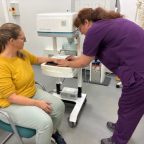
4 ways to help depression
A landmark study by the University of Exeter has found that daily 20-minute meditation sittings are complementary to antidepressant drugs or counseling sessions for depression. Quite half their patients during this study felt tolerably to be off their antidepressants after three months with no other intervention but MBCT.
Online Therapy
Individuals with depression might be more vulnerable during the COVID-19 pandemic because:
You may have limited access to treatment options (like therapy or counseling)
Isolation can trigger symptoms of depression (such as feelings of loneliness and hopelessness)
Additional National Alliance on Mental disease (NAMI) guidelines for COVID-19 prevention recommend that where possible, healthcare providers like professional counselors and psychologists privately practice across the United Kingdom should start providing their services remotely through telehealth services like online therapy and teletherapy.
Alternative Treatments
Cannabinoids are chemical extracts found within the industrial hemp plant. Two of the best-known cannabinoids are THC and CBD. CBD’s benefits for depression are still speculative but are linked to having a positive effect on the brain’s serotonin receptors. Serotonin may be a natural mood stabilizer liable for your mood and emotions. Consequently, low serotonin levels have links to depression, insomnia, and anxiety.
While CBD doesn't boost the brain’s serotonin levels, it's going to affect how your brain’s receptors answer existing serotonin in your system. This is often because CBD features a relaxing effect, and should reduce symptoms of depression caused by stress.
Elevate CBD is a London based company best known for stocking quality CBD and hemp products. Their bestsellers include their CBD E-Liquid, CBD oil, and their one-of-a-kind CBD hemp flower strains. O
These combinations offer relaxation, making their oils an excellent product for anxiety and depression relief. Visit their website StayElevated for more information on their CBD products. Please note that CBD isn't a substitute for prescribed antidepressant medication, nor does it get you high.
Exercise
Depression can significantly decrease your energy levels, making small tasks difficult to try to do. While this might be difficult, attempt to increase your pulse (and consequent brain activity) by starting with small movements and building on this momentum. Try taking a 10-minute walk every day, riding your bicycle, jump rope — anything to stay you moving. Movement is vital for a psychological state as exercise increases the brain’s plasticity by releasing endorphins, which help to enhance your mood.
Chronic Care Management
Access to a chronic care management service, or chronic-care management (CCM) practitioner, is useful for Medicare patients that suffer from depression triggered by chronic illness. Depressive disorder in older patients are often triggered by chronic illnesses like Alzheimer’s disease, a heart condition, hypertension, Parkinson’s disease, asthma, and arthritis. These chronic illnesses meet the standards of two or more chronic health conditions required by the Centers for Medicare & Medicaid Services (CMS) for chronic care management. Consequently, your CCM coordinators should assess for symptoms of depression and intervene with a chronic care plan on chronic illnesses and psychological state resources.

















